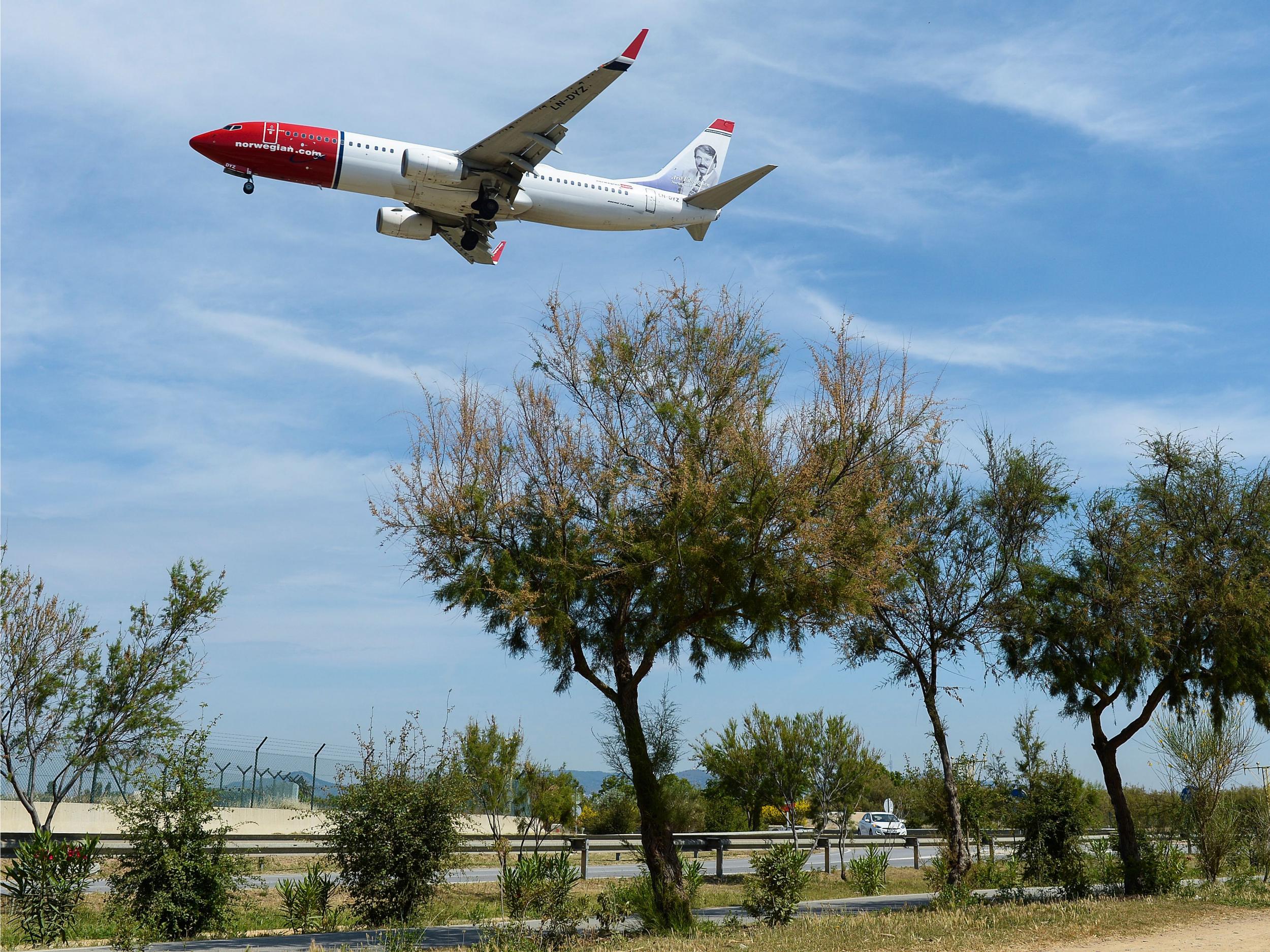Norway to make all short-haul flights electric by 2040
Airport operator wants Scandinavian nation to be 'first in the world' to switch to air transport powered by electricity

Your support helps us to tell the story
From reproductive rights to climate change to Big Tech, The Independent is on the ground when the story is developing. Whether it's investigating the financials of Elon Musk's pro-Trump PAC or producing our latest documentary, 'The A Word', which shines a light on the American women fighting for reproductive rights, we know how important it is to parse out the facts from the messaging.
At such a critical moment in US history, we need reporters on the ground. Your donation allows us to keep sending journalists to speak to both sides of the story.
The Independent is trusted by Americans across the entire political spectrum. And unlike many other quality news outlets, we choose not to lock Americans out of our reporting and analysis with paywalls. We believe quality journalism should be available to everyone, paid for by those who can afford it.
Your support makes all the difference.All short-haul flights in Norway will be entirely electric by 2040, in plans made by the nation’s public operator of air transport.
State-owned Avinor, which operates most of Norway’s civil airports, is aiming to be the “first in the world” to switch to electric air transport, according to its chief executive Dag Falk-Petersen.
“We think that all flights lasting up to 1.5 hours can be flown by aircraft that are entirely electric,” he told AFP.
The announcement confirms Norway’s reputation as a leader in electric power.
Last year, energy think tank Energi Norge said it was possible for Norway to become the first country powered by 100 per cent clean electricity.
“Our target is for Norway, based on hydro power and better collaboration between businesses and the authorities, to become the world’s first fully electric society by 2050,” Oluf Ulseth, the director of Energi Norge, told NTB.
Norway is able to leverage its abundance of rivers and waterfalls to produce the majority of its electricity using hydropower.
The Scandinavian nation has also been a pioneer in moving away from fossil fuel-powered vehicles, with politicians suggesting all cars in the country could run on green energy by 2025.
By comparison, UK climate advisers have recommended that the Government should aim to make around 60 per cent of new cars and vans electric by 2030.
In a 2017 report, Avinor announced that in cooperation with the Norwegian Sports Aviation Association and major airlines, it had set up a development project for electric aircraft.
Avinor said it had “called for Norway to be established as a test arena and innovation centre for the development of electric aircraft”.
Major companies such as Airbus, Boeing and Siemens believe electric planes carrying up to 70 passengers on short-haul flights will be possible within the next decade, and easyJet is collaborating with American start-up Wright Electric to help develop the technology.
Wright Electric has said it aims “for every short flight to be electric within 20 years”.
Avinor intends to reduce aircraft greenhouse gas emissions in the short term by phasing in biofuels in the coming years, and then build on these reductions by phasing in electric planes.
“What’s particularly exciting is that you’ll reduce costs to passengers to a much lower level,” Jan Otto Reimers, special adviser at Avinor told NRK.
“The planes will become similar to buses, and will be far more effective than trains or other means of transport. Simultaneously, they’ll have a fantastic environmental profile.”
Join our commenting forum
Join thought-provoking conversations, follow other Independent readers and see their replies
Comments